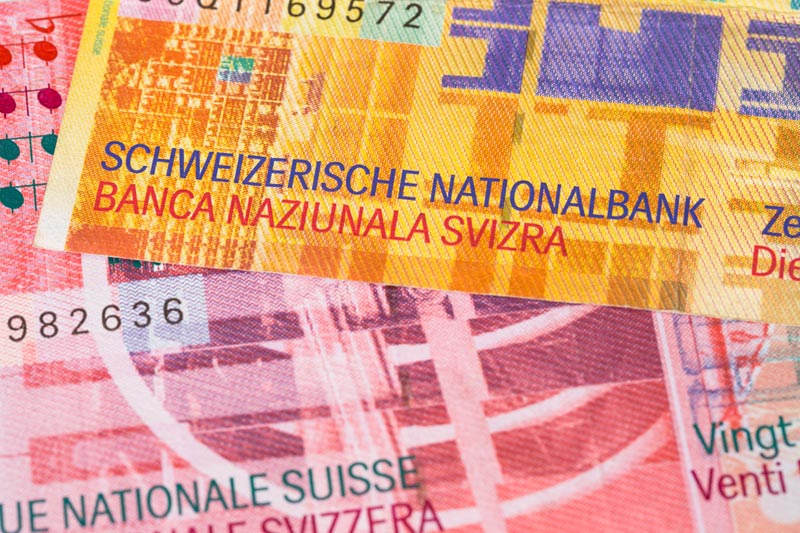* Swiss franc near 1-mth high vs dollar, hits 6-wk high on euro
* Concerns about Deutsche Bank sour risk sentiment
* Dollar/yen rises in possible flow-driven move at month-end
* Yen on track to post 3 straight quarters of gains
By Masayuki Kitano and Hideyuki Sano
SINGAPORE/TOKYO, Sept 30 (Reuters) - The safe haven Swiss franc held firm on Friday as concerns about the health of Deutsche Bank undermined risk sentiment, while the Japanese yen looked set for its third straight quarter of gains despite suffering a slight loss on the day.
Earlier, the dollar rose from around 101.15 yen to 101.80 yen in the space of a few minutes, a move that traders said appeared to be flow-driven rather than in reaction to any specific news.
While the catalyst was unclear, one trader said there may have been dollar buying linked to the month-end or quarter-end.
The dollar later pared some of its gains and was last trading at 101.28 yen, up 0.2 percent yen on the day. That was still down from Thursday's high of 101.845 yen.
The yen, often seen as a safe-haven currency, has rebounded from Thursday's trough versus the dollar as global share prices slipped on worries about Deutsche Bank DBKGn.DE , under pressure from a massive fine the United States demands over its sales of mortgage-backed securities.
The latest lurch came after Bloomberg reported that a number of hedge funds that clear derivatives trades with Deutsche had withdrawn some excess cash held at the lender. focus is next week's U.S. economic data.
The dollar is likely to head lower against the yen if the U.S. indicators are weak, said a trader for a Japanese bank. He added, however, that any downside test is unlikely to be sustained and that there are likely to be phases when the dollar gets a lift from short-covering.
The yen has gained about 2 percent so far this quarter, on course to log its third consecutive quarter of gains, as investors suspect the Bank of Japan has reached a practical limit in stimulus and has lost clout in cheapening the yen.
For now, though, the dollar has been supported above 100 yen, seen as a psychologically important level by many.
Traders are also wary of possible attempts by Japanese authorities to talk down the yen, even though they think their intervention at this stage is unlikely.
"On the whole, I would expect the dollar to gradually weaken broadly, for as it stands now, Democrats are likely to win the White House, which means the Fed will remain cautious on raising rates," said a trader at a European bank.
The Swiss franc hit a six-week high against the euro at 1.0832 franc EURCHF= earlier on Friday. Against the dollar, the Swiss franc CHF= stood at 0.9661 franc, having set a one-month high of 0.9640 franc on Thursday.
The euro EUR= eased 0.1 percent to $1.1217, having stayed in a narrow trading range of just over two cents for the whole of September, the tightest since June 2014.
The British pound GBP=D4 held steady at $1.2969. Expectations that the Bank of England might further ease monetary policy in coming months have weighed on sterling.
On the quarter, the pound lost 2.6 percent, which would be the fifth quarter of losses in a row, the longest such streak since 1983-84.
Some currency analysts think the pound's outlook remains bleak given worries that an exit from Europe's single market will drag Britain into a recession and blow out its ballooning current account deficit, already among the highest in the developed world.
"The current account deficit in UK is close to 7 pct. Budget deficit is close to 5 pct of GDP. We've got political turmoil. And for that, it will give zero percent yield. How much of that would you like to buy?," said David Bloom, London-based global head of Forex strategy at HSBC.
